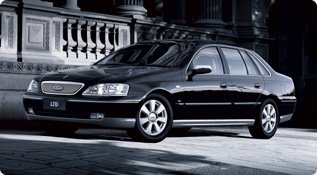Blogging on liberty, capitalism, reason, international affairs and foreign policy, from a distinctly libertarian and objectivist perspective
15 August 2006
Justice without trial
I've been robbed!
11 August 2006
Terrorist threat thwarted
Daily Telegraph quotes UK Home Secretary John Reid "We are involved in a long, wide and deep struggle against very evil people." Reid was a member of the Communist Party once, but has been quoted saying ""I used to be a Communist. I used to believe in Santa Claus". He's moved a bit!
Daily Telegraph report on delays at UK airports.
The Times on how Pakistani intelligence helped foil the plot! (Imagine if Islamists took over Pakistan - nuclear weapons in their kit!)
The Independent reports on the terrorists' moral if not financial backers, the Taliban shooting a 13yo boy and his grandmother in Afghanistan for being alleged government spies. Yes, some people think this is the same as bombing terrorists.
08 August 2006
Death of one of Castro's minions
Ordáz was a deputy of the Cuban National Assembly and director of the Havana psychiatric hospital (Mazorra). One of the functions of the hospital is (this has not changed) to hold political dissidents, to treat them and administer electric shocks. Ordáz admitted it, exiles of the regime described it. Ordáz’s main crime was to let the security forces use the psychiatric hospital for torture and detention, and we shouldn’t forget the Marxist-Leninist view that opposition to communist is, in itself, a psychiatric disorder.
I don’t expect many of the mindless pricks who wear Castro’s image on the chests or cheer on the Cuban regime know this, after all, the regime doesn’t like showing its darker side.
He remarkably got a Pan American Health Organisation award for his treatment of psychiatric patients. Tours by foreign psychiatrists of the Mazorra were the typical Potemkin tours of clean, functioning parts of the hospital – they weren’t shown the dark side. North Korea is more cautious, it never lets anyone see their psychiatric hospitals, though I doubt people with mental illnesses have much chance there.
This is a description of what would happen at Mazorra:
“Every morning at 5 a.m., Heriberto Mederos, and his sadistic assistants, one of whom was nicknamed El Capitan, would select the unfortunate ones who would undergo ECT after being doused with cold water (for better electrical conduction!) and thrown on the hard cement floor where they would undergo the procedure. El Capitan would later sodomize young prisoners. Others would be brutally beaten. One of them was found hung and incinerated with gasoline. Everyday 80 to 90 of the inmates would have to stand like animals en La Perrera, "the dog kennel," the small enclosure measuring approximately 10 by 30 meters on a slab of cement which was in the courtyard behind the Sala Carbó-Serviá. They would stand on the crowded floor, under the sun, pitted against each other surrounded by other strangers and madmen, excrement and urine stench everywhere.”
By the way Mederos moved to the United States, lied to immigration officials about his past and had a low profile until he was convicted of the lying. He died before serving out the five year sentence he was given.
It is true that Ordáz apparently did some good. The hospital was in a dire state after the fall of the Batista regime, with many patients naked and manacled without running water. The hospital is in a somewhat better state, perhaps for some – but he ran a hospital that allowed the likes of Mederos to torture patients, for the facility to be used to torture and incarcerate political prisoners.
The Cuban regime of Castro is nothing to be proud of – for the likes of Matt Robson and other felchers of such regimes to cheer them on, is exactly the same as Margaret Thatcher being an apologist for Augusto Pinochet. The system that happens to deliver improvements in standards of living (and let’s face it Cuba isn’t exactly wealthy) are not justified when those who question the regime are tortured and killed.
Hopefully Castro will die swiftly and his brother will also be overthrown (what is it with this monarchist like inherited leftwing dictatorship fetish? Kim Il Sung did it, Hafez Asad did it, now Castro?), and Cuba will become free.
Back in the Blogosphere
I am now more willing to write as I did before. Though less frequently and more focused.
01 August 2006
Carpe Diem
I just have one piece of advice, cliché’d though it may be, but it is carpe diem.
Life is finite – enjoy it with the people you love. Seize each day with them as if it is your last.
While often every day may seem like the one before – it wont always be that way. Although often it is easy to get into a routine of expecting things to remain the same, to expect people to always be there, even though you know that it is probably not true. It is always better to live as if you are alive, than to live as if death is upon you.
Some of the people you love the most will be gone one day. The point of your time with them is to savour each moment of being with them, to enjoy what you like, to share that, to smile and to know that this is living.
Sometimes you wake up and find that person is gone, sometimes you get a warning about how terminal life is – you should take that warning.
I can’t blog about politics or philosophy right now. I was going to mention the last Top of the Pops on BBC2, Jeremy Clarkson being considered as Tory candidate for Mayor of London and to expand on Not PC’s great column about collective responsibility for child murders as “we” are responsibe. I had written shreds about these things yesterday. For the moment, I can’t write about such things as they are not important to me right now.
29 July 2006
Want to bludge an upgrade? (of course you do)


*
So, besides paying three times the price of economy to sit up the front (and sometimes there are cheap deal, like 2 people travelling for the price of 1 full business class ticket), how do some people get an upgrade? Are some “lucky” while others are not? Well a lot of people annoy check in staff at airports trying to bludge a seat up front, particularly in the UK and US. I’ve been upgraded umpteen times, but most times it is because I used airpoints or had an upgrade voucher from the airline because of my frequent flyer status, only a few times was it spontaneous and always on Air NZ (which probably also reflected by frequent flyer status).
*
So, assuming you don’t want to pay to go business or first class, the first option is:
*
Use frequent flyer points to pay for a standby upgrade: Usually whatever programme you are in (Air NZ Airpoints, Qantas frequent flyer etc) will explain on its website what points you need for an upgrade. Most airlines only allow upgrades on standby, so you will probably only know if you are upgraded when you check in or even at the gate. Air NZ does allow confirmed upgrades with airpoints, but you need a lot of airpoints dollars to do that.
*
By the way, airlines vary in how easily they upgrade with frequent flyer points. Air NZ is more likely to grant an upgrade than Qantas, simple as that. It is easier to earn Qantas frequent flyer points than Air NZ airpoints dollars, but harder to spend Qantas frequent flyer points - so that's the tradeoff. However, upgrades are also by far the best value you can get from frequent flyer points – the upgrade is worth a lot more than the economy class seat (if you paid for it), and usually costs less points that getting a free economy trip.
*
OK, so you’ve checked and you don’t have enough points. What now? Well, to be honest, by and large the odds are low that you’ll get an upgrade. Whether it happens depends on a whole host of factors, of which the ones below will add or subtract from your upgradeability:
*
Frequent flyer: If you are a member of the airline’s frequent flyer programme (regardless of status), this definitely helps. If you are a member of one of its partner airline’s frequent flyer programmes, this helps a little less (check Star Alliance and OneWorld websites to see). If you are not, then you’re just like many tourists – you fly the airline occasionally, so your loyalty matters less than everyone else who is a frequent flyer. Don't try claiming because you are a competitor's frequent flyer that makes you special - it doesn't (but remember the airline partners - the competitor might actually be in an alliance with the airline you are flying and you can earn points with it)
Dress, appearance and hygiene: What this basically means is this - the better dressed and tidier you are, the more likely you will be considered “upgradeable”. If you look like a backpacker, or like the main benefit you'll get from business class is more alcohol – forget it. The airline will more likely upgrade passengers who will quietly enjoy the experience and not wreck it for others. The messier, noisier and smellier you are, the less likely you are wanted in business. Airlines don’t want people who paid to sit up front complaining about you (frankly it would be nice if you did this anyway).
*
Be polite: If you are hoping for an upgrade, then be nice to the check in staff. If you are rude, ignorant or demanding then why should they bother? Be complimentary about the airline, be grateful for the service, say thank you a lot and be gracious. Act like a guest, the only reason to get angry is if the airline screws up on something basic - remember the staff have most of the power, and in their shoes, would you upgrade someone who treated you like dirt?
*
Lying or claiming you have “some right” because of your trip or condition: This is a huge negative. Don’t even try it. People make all sorts of things up to get upgrades. In the UK one survey indicated that 1 in 10 people pretended to be a celebrity to get an upgrade. 1 in 20 claimed to be pregnant (because that gives you the right!) and 13% tried to bribe their way to an upgrade. Others claim there is a medical reason – in which case presumably you are stupid enough to fly against medical advice in the back of the plane. All of these fail miserably. Saying you’re going to a funeral doesn’t work either, neither does “you’re on your honeymoon” – (forget the Friend’s episode, Monica and Chandler showed you exactly what happens when you ask). At best you’ll get a polite decline, but more likely you scuttle your chances of being considered and might even get a poorer seat allocation in economy. Check in staff have heard it all before, you’re not the first and probably not the first on that day. They are more likely to think of you as just another timewasting try hard freeloader.
*
Special meals: If you have requested a special meal, you won’t be upgraded (unless we are talking about an upgrade request made with airpoints before the day of flight). Special meals cost money to make, and the airline wont throw away that meal to get you a flasher one in business – and it wont go through the logistics of loading an economy class special meal to carry to business class for you. Forget it.
*
Children: If you are travelling with children, forget it. You wont be upgraded with your kids, because children don’t get upgraded. They are the least predictable travellers and can be the greatest nuisance for others, so why risk upgrading children to sit beside adults who have paid. You wont be upgraded without your kids, because the airline doesn’t want to be parent to them. Your kids wont be upgraded without you for the same reason. If you have bought business class for you, and economy for your kids then basically tough luck. After all, what the hell do kids need a flat bed, pre takeoff bubbly and after dinner port or cognac for? BA’s policy when parents ask for an upgrade for the kids when a parent is in a higher class than their children is simple - offer the parent a downgrade – capisce? Sit down the back with men, or pay to take them up front. Yes, quite a few parents do (I've seen it).
*
Travelling together or in a group: The more the less merrier. If the odds of upgrading you travelling alone are low, they are extremely low for two of you and zero for more than two.
*
Where do you request?: Many spontaneous upgrades happen at the gate, not the checkin. This is because airlines often wait to see how many booked passengers on an overbooked flight turn up, then if a cabin is overbooked, move some forward. Requests at checkin are more common that at the gate, though more are trying at the gate now. Requests at the lounge may have greater success, BUT you have to have the right to lounge access in the first place (which means either frequent flyer status or member of Koru Club, Qantas Club). If you have status or a paid up club member you already are ahead of the proletariat in terms of your upgradeability.
*
Busier flights/holiday periods: Essentially this means you have more chance of being upgraded on flights full in economy than not, because if the flight is overbooked the airline needs to do something with the extra passengers. It costs the airline to put you in a hotel or shift the ticket, both in money and in pissing off the passenger (“but I paid for this flight”), so if the next class up has spare seats, the airline will bump people up. It may even bump up two people one step, (shift premium economy to business and economy to premium economy) to make space. The bump up will give priority to frequent flyers with high status etc etc. Also note that holiday periods have less business traffic so more business class seats.
Routes with poor business class sales: Some routes are packed with business class passengers, others are nearly empty. For example, Trans Tasman routes where the airline uses larger planes (e.g 747s, 777s, 767s, Airbus A340s) will tend to have a reasonable number of premium economy or business seats empty – but not those using 737s or Airbus A320s. Auckland to LA and San Francisco tends to be busy in business and premium economy. Auckland to Osaka tends to have plenty of business class seats (almost everyone on board is Japanese and not paying business class and not being entitled to an upgrade). On Air NZ premium economy is less popular to Asia (where the class is not offered by most Asian airlines) so flights to Asia may increase your chance of an upgrade. Similarly premium economy LA-London is not popular, but business class is. Tahiti to LA typically is full in business because of wealthy American tourists, but Rarotonga to LA is not.
*
Dates with poor business class sales: Midweek and Saturdays are less likely to have business travellers, and Sunday morning departures as well. However it is route dependent. Plenty leave on a Saturday to get to Europe on Sunday for a meeting on Monday. Few businesspeople fly midweek to Europe because they would arrive at the destination on the weekend or Friday.
*
Be willing to move seats when asked: If the airline calls you at the gate and offers to change seats (probably so a couple can sit together or to sell another seat in your class), there is a chance the new seat you are offered is an upgrade.
*
The fare you pay: The cheaper the fare you paid the less likely you’ll be upgraded. Full fare economy passengers are more likely to be moved first, because they are more valuable customers. “smart saver” or “super saver” fares will be last chosen. If there is a small difference between the bottom fare and the next one up, it may be worth choosing, especially if you get more frequent flyer points.
*
Airline policy: Airlines have different policies and it is difficult to glean what they are. Assuming you aren’t ruled out by one of the points above, one article I read suggests the following:
*
Qantas and Singapore Airlines do not respond to upgrade requests and upgrade spontaneously only when absolutely necessary (frequent flyers have preference).
*
Thai, United and American Airlines tend to respond to upgrade requests positively if there are spare seats, but preference given to their own frequent flyers with status, and then partner airline frequent flyers with status.
*
BA, BMI and Lufthansa tend to respond to upgrade requests only if the passenger is in economy, and it is overbooked and you are a frequent flyer with status. Partner airlines' frequent flyer status comes next.
*
Genuine complaint: If the airline has screwed something up (don’t lie about this) and you have a genuine complaint, you are more likely to get upgraded if there is a seat available. My girlfriend did this on a recent flight from LA to London, and got bumped up to premium economy because the checkin staff were rude, denying something that had previously been agreed with the airline over the phone. You can’t plan this, and you probably don’t think yourself lucky if there is a balls up by the airline. This will be done to assuage you, but it wont be done if you demand an upgrade in compensation. It is more likely if you are polite, humble and explain what happened and why you are unhappy, and be grateful for the gate or lounge staff for listening.
*
Even if you can tick all of the above, you still are, most of the time, going to miss out. Either some have “paid” for upgrades with vouchers or airpoints, or business class is sold out. Just because it looks empty when you walk, doesn’t mean it is – many business class passengers sit in the lounge and get called for the flight as the final call, so they get on last.
*
Remember, most of this advice is the hard way of getting a seat up front on the plane. The easy ways still are:
*
1. Buy a business class ticket;
2. Use frequent flyer points/upgrade vouchers to request an upgrade (the airline has given you these as a reward for loyalty).
*
An alternative is to try premium economy, it is between 20% and 50% more than economy class, and gives you about half a foot more legroom, double the recline and a bit more service. It isn’t business class, but is a relief from the cattle class down the back. Air NZ is the only airline flying to NZ which has premium economy, but BA and Virgin (which fly to Australia and the US) both have it as well.
*
You might not feel it when you fly down the back on a long haul flight, but most airlines make little money from economy class passengers. In fact, if there are no first/business/premium economy passengers, your economy class fare would probably be about 50%-100% more than it is, or the plane wouldn’t be able to fly. So don’t sneer at those who personally or through work have paid 3 or 4 times what you have for their tickets – they are, in effect, subsidising your flight.
28 July 2006
George Michael's standards aren't high


27 July 2006
Islamic Republic of Iran - evil child murderers
Go on you so called “peace activists”, go on feminists, who say you want to defend women’s rights. Go protest against a state OTHER than the US, UK or Israel committing atrocities – one that executes teenage girls.
.
“Witnesses report that she begged for her life as she was dragged kicking and screaming to the makeshift gallows. She shouted "repentance" over and over again – a gesture which, according to Islamic law, is supposed to grant the accused the right to an immediate stay of execution while an appeal is heard. Atefeh's cries were in vain. Haji Rezaie, the judge who presided over her trial, put the noose around her neck himself. He said he was pleased to do it. "Society has to be kept safe from acts against public morality," he insisted. He ordered that her body be left hanging from the crane for several hours so people could see what happened to teenagers who "committed acts incompatible with chastity".”
.
I’d put a bullet through Haji Rezaie’s head in a moment to stop him doing this to others. He is like a Nazi extermination camp commander - utterly without redemption. The married man received 75 lashes and was then freed - but these sorts of men run Iran.
.
The Daily Telegraph continues:
“She was sold into prostitution at the age of eight by her parents. She recalls the experience of when her mother "first took me to a man's house" as "a horrible night. I cried a lot … but then my mum came the next day and took me home. She brought me chocolate and cheese curls."
Forced by beatings and threats to continue "visiting men" from that night onwards, she became pregnant and had twins when she was 14. She was punished with 100 lashes by the Iranian courts for giving birth to illegitimate children.”
What should the state do when it discovers this? Take care of the child, and imprison the parents for selling her, and the men for abusing her. Noooo, in Iran girls from 9 up are considered capable of committing crimes against chastity – so the evil scum (fine if they rape little girls) beat her.
how about Kaveh Habibi-Nejad, a 14-year-old boy was flogged for eating outdoors on Ramadan. He died from the injuries because the metal cable used to flog him hit his head.
“Mahbobeh Abbasgholizadeh, an Iranian academic, was arrested on November 1 after having queried some aspects of Iranian justice in a speech she made at a conference. She was held for a month before being released and charged with "acting against the security of the country". If she is convicted, it could mean an indefinite prison sentence. “
However you wont will you? You’ll be upset about Israel and go on about war, but you’ll sit back and do nothing about the murderous Iranian regime. You’ve give me every excuse under the sun about why you, as a feminist, liberal or whatever nomenclature you have, wont burn the Iranian flag, but happily cheer when the US flag is burnt. You’ll simply prove that this is either a game, and only by being anti-American can you and your mates get a party protest going and feel good about yourselves, or your so called beliefs are hiding your true nature. You’re happy to have children beaten and executed by a regime, because it is opposing the USA.
Clark's anti-Israeli comment and is Hone Harawira anti-semitic?

Stuff reports that Helen Clark couldn't wait to deplore the tragic Israeli attack on the UN peacekeeping post, but Keith Locke quite rightly has pointed out "I'm a little concerned that the prime minister on one hand says that Hizbollah should stop its attack, yet she only asks Israel to cease its disproportionate violence." She also said "Government statements have been very carefully balanced to condemn violence on both sides. Two wrongs never make a right and we would like a ceasefire now". Oh, so that means if you are attacked, then sue for peace - when Germany attacked Poland, Britain should just have said "no Mr Hitler we'll negotiate". THIS is the defence policy of this government "two wrongs never make a right"!
.
Don Brash has called for peace and correctly said "Tragically, there appears little prospect of lasting peace in the Middle East until all parties recognise the right of Israel to exist." Indeed, something Hizbullah, Hamas, the Palestinian government, Syria and Iran don't accept.
.
Peter Brown from Winston First endorses Clark's comments "100 %". Gee the brainbox handle was being cranked quickly for that one. I thought Whingers First would approve of foreigners killing each other if it reduced the risk that they may immigrate.
.
Rodney Hide refreshingly said "I ask New Zealanders, and this Parliament, to consider what would be New Zealand's response if we had to confront a neighbour right on our borders who had committed such atrocities, and whether we would stand idly by and talk about a proportionate response". Yes exactly.
.
However, Hone Harawira said, in Maori "The violence perpetrated by the Jews must stop".
.
Pardon me? For starters, Hizbullah started this tit for tat. He doesn't mention the terrorists at all, you'd think Hizbullah was sitting back taking it and had done nothing to provoke this. More disturbingly is his view that it isn't Israel, but it is "perpetrated by the Jews". "The Jews" live around the world, quite a few live in New Zealand. This is the sort of sneering collective accusation language that you'd see in Nazi Germany in the 1930s - one sided - not even denying that Hizbullah is to blame, but as if Hizbullah is doing nothing, as if Lebanon is just some peaceful country with no foreign backed terrorists attacking Israel. Blanking out one side's culpability completely.
.
So what does Harawira think of "the Jews"? and is this a surprise, given he is an MP from an avowedly racist party?
26 July 2006
Greens talk bollocks on transport (again)

.
For starters he claims that “road freight transport is the most energy intensive mode of transport consuming four times as much energy for each tonne of freight per kilometre compared to rail; and nine times as much energy as coastal shipping (according to a 2000 Energy Efficiency and Conservation Authority report).”. Well, the “four times” figure was a comparison made in 1981 (and truck efficiency has increased more than rail efficiency). Railways ran a test comparing a train with a truck moving the same weight of goods between Auckland and Wellington - this was part of its justification for the government continuing to cover its mounting annual losses and to argue against deregulation of freight transport (at the time trucks were legally prohibited from hauling most goods greater than 150km). Since then technology has moved on, particularly for road transport. When comparing long haul bulk/containerised freight today, road uses about 2.5 times more energy than rail. However, note the proviso – long haul bulk/containerised freight. Most freight trips are short to medium, and involve less than wagon loads of freight. Rail is generally no more efficient for trips of less than 150kms (i.e. Auckland to Tauranga, Wellington to Wanganui), and certainly never efficient for moving less than wagon load (a wagon being a modern one which has the capacity of a large truck not the old little 4-wheel ones) of freight.
Secondly he claims “a 2005 Ministry of Transport study showed that truck users pay only 56% of the costs they impose on society while rail freight users pay 82%”. Now this study covered data for the 2001 year, since then the government has committed $200 million to subsidise rail infrastructure for freight. However, more importantly Norman hasn’t burrowed down to see what these so called “costs” are.
.
Strictly financial costs (costs that government actually pays directly – roads, police, administration) see trucks producing a surplus of $45.6 million (from Road User Charges, although this is reinvested in upgrading the road network). Beyond that though, the costs Russel is concerned about are monetised costs for air pollution, accidents, climate change and noise. Now air pollution is largely a factor of particulates, and the amount of sulphur in diesel (which is the source of most particulates) has been reduced by two-thirds since the study (as the Marsden Point refinery is getting upgraded). It is about to be reduced by another 90%, so in fact this is changing. The figures for air pollution should be different now and about to be even more different.
So this simple comparison is not so simple at all.
.
Russel ignores other parts of the report that don’t suit his “world view”. One is the detailed case studies into long haul freight, which actually looked at the marginal cost of shifting freight between rail and road on three routes. Table 3.6 of the main report indicates that moving freight between Auckland and Wellington, the marginal cost of rail is HIGHER on environmental grounds than road. It is the same between Napier and Gisborne, but a quarter between Kinleith and Tauranga. Kinleith to Tauranga by rail is, of course, through a tunnel, whereas the road is over the Kaimai ranges. The results, in other words are not so black and white.
.
What other results he wont like from the same study are:
.
1. Rail passengers pay only 35% of the total cost of providing Auckland suburban passenger train services. In Wellington it is 56%. (page 57 of the report)
2. The roads that recover the least of their operating costs are rural local roads (page 50). Urban state highways recover the most (hardly a surprise that the busiest roads generate the most revenue). Railways aren’t going to be an alternative for lightly trafficked rural local roads. The problem with local roads is that they are rates funded, which carries its own inequities.
3. The environmental impact of buses in cities is around 18.2 times that of cars. This means a bus should ideally be replacing 18 cars, to break even with cars on pollution. (page 64)
4. For trucks “Current charges (mainly RUC) are in most cases greater than the level of marginal provider/external costs (principally accident externalities and marginal road wear).” (page 107)
5. For freight comparisons between road and rail “For the primarily rural movements analysed, the environmental impact costs are similar in magnitude by the two modes.” (page 107)
6. On Auckland and Wellington passenger trains and buses “If charges were to be set to cover only the marginal costs in both periods, then peak charges (fares) would broadly double, while off-peak fares would reduce by half or more.” (page 106)
.
The Greens are good at selectively using facts. I have just done the same, and there are some important points about transport in the report, but it does not simply say "trains good trucks bad". The study needs updating, as subsidies for rail have increased markedly, and charges for road use (and money for roads) have also increased (while a major source of pollution has been reduced). Now there are problems with road transport, for starters ratepayers shouldn’t be paying for local roads – that should come from road users. In addition, congestion in cities should be managed by charging being higher at peak times and lower at other times - but that requires replacing fuel tax with electronic tolling.
.
Blair urges people to take more responsibility
Greens want Nanny State to nanny your kids
End to long distance rail travel in the North Island (updated)
.
Butson claims “We have a rail network which is supposed to pay its entire cost of operation through the operator at the same time as we have a national roading system which is available for any commercial entity to use at minimal cost when the vast burden of the infrastructure is paid for by the private motorist.” He is talking nonsense. The government is pouring taxpayers money ($200 million) into the rail network, which is hardly being paid by the operator. Given the train has largely lost out to airlines, the road network is only part of the competition and bus operators pay road user charges (which are not “minimal cost”) to use the highway. That RUC easily pays for the damage caused by the buses to the highway, a review carried out five years ago proved that.
.
Fortunately, the Greens aren’t calling for it to be subsidised, which is surprising but good.
High density housing and public transport not the answer
Market working again! *sigh*

.
Not because some nanny statist environmentalist wants them to, not because of some tax incentive, or preferential motor vehicle licensing fee or the rest, but because they want to.
.
Amazing really – a resource becomes more expensive and more scarce – the government and environmentalists worry themselves silly that it will run out and demand that something be done so people don’t keep “wasting it” – the price goes up, and consumers make their own judgment about whether they are willing to pay or not, and quite a few choose to save on fuel (buying smaller cars, catching public transport). Money goes from buying large cars and more petrol, to smaller cars and other things, or buses.
.
Planners can’t make this happen. It is the decisions of thousands weighing up how best to use their own money – and they happen to know better than the government.
Labour's tax cuts
.
However, no reason to get too excited, and few are (the state sector unions predict doom and gloom because their solution to prosperity is to take more of your money to "invest" in what bureaucrats do) it is mostly about cutting company tax from 33 to 30% (nice but only a first step and the top personal rates should also follow it), targeted tax credits (more picking winners) and changing depreciation rates. Dr Cullen has said this also could mean changing thresholds for income tax – hardly exciting stuff since he announced that in last year’s Budget. Remember the 70c a week tax cut? Maybe it will be a dollar - wow.
.
So I’m underwhelmed, at best it shows that even Labour sees some merit in tax cuts – the question is whether you want hardly any (Labour), some (National), quite some (ACT), or a lot (Libertarianz).
News on Sunday - leftwing incompetence at its best
.
However, back to the paper. It was a catalogue of disasters in many ways, and showed a litany of sheer incompetence. Remember, these sort of people wanted to take more taxes, run your education and health system and economy. Why oh why would you trust them?
.
1. In the early days Pilger fled to Australia to make one of his “documentaries” for several months, and when he found out the editor was putting together the paper in ways he didn’t like and not running it past him (kind of hard given he was far away), he immediately resigned and wrote articles in other papers damning the News on Sunday before it was even published.
2. The paper was based in Manchester, because it didn’t want to be London focused and saw its heartland as being the working class north. As a result it was distant from capital city politics, and advertising agencies and a pool of more experienced potential employees.
3. The paper advertised for journalists. Something not done in the print media as people usually are discovered or passed on by word of mouth. The number of applications were so high that most did not get a reply, after a few were looked through they were given jobs, there were few interviews and no screening of the vast bulk of applications. Very fair employment policy.
4. Virtually all of the senior staff had never worked on a national newspaper before, many not in the newspaper sector. So there was very little experience of the business.
5. Many of the senior staff had no experience in their administrative roles. For example, the head of personnel had never worked in HR (a qualification that is positive in my view for today), the head of finance had never done accounts for a business, ever!
6. There was an “equal employment policy” which effectively meant if you were an ethnic minority, disabled or gay/lesbian you were more likely to get the job. The goal was to have more diverse points of view in the paper – the result was a combination of hiring people with little skill or at worst incredible patronising of some groups. The black editor had no experience being an editor before. The head of HR described how the paper treated disabled people “we hired all deaf people in the mailroom and to do deliveries, because they could communicate together”. How fucking patronising is that?
7. There was a focus on political correctness rather than good management. One former staff member described how around a week before the first issue he had arrived to work at the office to find it empty. The whole staff were sent on a “deafness awareness course” which consisted of “walking around Manchester wearing earplugs”. How mind numbingly stupid is that?
8. Decisions were made on “consensus” were certain key individuals having “golden shares” that meant they could veto decisions. In effect, there was no clear leadership and endless committee meetings and relitigation of decisions. A democratically controlled workplace saw people observed saying one thing in one meeting and changing for another. As a result, it was dysfunctional.
9. The £6.5 million raised to fund the paper came from trade unions and local authority pension funds. The stereotypical loony leftwing Labour council was not just a stereotype, as several Labour controlled councils frittered away their employees’ savings on this venture. How utterly incompetent is that? What pension fund decides a good way to make money is to back a new leftwing newspaper that is run by amateurs? Why weren’t the councillors being sued by the union? Gee, I wonder.
10. The paper commissioned an advertising agency to launch it. The agency came up with the slogan “no tits but lots of balls” to make the point that it wasn’t a page 3 girl tabloid, but “gutsy journalism”. It upset the feminists too much that the word “tits” was mentioned (as it is degrading to women to use the word – shame so many women use it”), that the campaign was dropped.
11. Leftwing millionaire businessman Owen Oyston offered to take over the paper and inject more money into it if the “golden shareholders” agreed. They didn’t, he walked away and it went bankrupt.
12. The paper ran at a loss through to the 1987 general election, with the staff working to ensure it didn’t go bankrupt before the election – because it would look like major Labour supporters can’t even run a viable newspaper. Which of course, they couldn’t.
13. Owen Oyston bought it off the receivers, and lost around £2 million before folding it 8 months later. Subsequently Oyston was sentenced to six years for raping a girl of 16, this was not the first allegation of rape against Oyston and he claimed it was a conspiracy to “set him up”.
.
The first issue sold 500,000 issues, not bad? Well it needed 800,000 to break even. By the eighth week it was down to a circulation of 200,000. Alan Hayling, who is now head of BBC documentaries (!! Yes the BBC is so demonstrably unbiased) who used to work at a Ford assembly plant, became the Editor – and got several ex. Ford employees to piss money down the drain invest in the project. Those workers were more abused by Hayling and the left than by Ford.
25 July 2006
Hizbullah proud of hiding behind civilians
24 July 2006
Church says flying is a sin
21 July 2006
Ding dong Ta Mok is dead

Hizbullah says children they kill are martyrs


